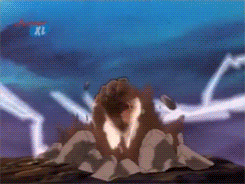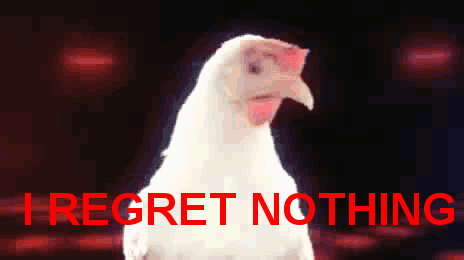Hello there. I am an environmentalist. I am a budding minimalist and a vegetarian. I only eat grass and drink water if it's "cruelty-free" and I turn my nose up at any meal my friends deign to eat in front of me. I wear socks with my Birkenstock sandals, make my own deodorant, and own only 100 things. I'm joking, obviously, but you'd be surprised at the many assumptions that come with subscribing these types of lifestyles. People often assume that it is all or nothing. If I say I am a minimalist, I can only own 10 things. If I am a vegetarian, I can't eat out often because everything is mostly meat. If I am an environmentalist, I must be a tree-hugger and only care about nature. The point I am getting at is, there are tons of myths about these lifestyles and I am writing to debunk and address a few.
Vegetarianism
A lot of people choose vegetarianism because they feel morally convicted about eating animals--these people may be champions of PETA, but this is not ALL Vegetarians. There are plenty of families that consider themselves low-meat for health reasons because At 200 pounds of meat per person per year, our high meat consumption is hurting our national health. There are Hundreds of clinical studies in the past several decades that show how consumption of meat and dairy products, especially at the high level, can cause cancer, diabetes, heart disease, and a host of other illnesses. I personally chose the lifestyle after taking a sustainable development class. I learned that everything we consume is a 'cog' within a system. If we approach the meat system one can observe that It isn't running effectively or in a sustainable manner. Animal agriculture has been named as one of the leading contributors to climate change and takes 16 pounds of grain to produce just one pound of beef. Imagine how many people we could feed with that grain if we didn't STOP meat consumption but simply decreased it, by trying a 'Meatless Monday'.
Environmentalism
Henry David Thoreau once said " Heaven is under our feet as well as over our heads." I cannot speak for all environmentalist, but I agree enthusiastically with this statement. The idea of "caring about the environment" at it's root is just going back to what most of our families taught us in kindergarten. "When you borrow something return it better than you found it!" We may loosely 'own' land we live on but we don't own the world or the general common space resources. We use them for the time we are here on this earth and then it returns to the general populace. It's our responsibility to not leave it worse condition than when it was 'handed' to us.
Minimalism
Being a minimalist doesn't mean "I hate things!" On the contrary! I value the things I have and the people who gave them to me. "Minimalism is a tool to rid yourself of life’s excess in favor of focusing on what’s important—so you can find happiness, fulfillment, and freedom." I don't want to open a bin in my home and not be able to tell you what's in it or it's importance. That type of life seems cluttered or like you're always preparing for a yard sale. It can be freeing to only keep what matters. We find ourselves doing that with people in stages of our lives who serve no purpose or have no use , so why not apply it to material things as well?
How They All Intersect
On my journey, I discovered that these life choices end up intersecting. Once I assimilated to one body of thought it made it easier to be open to being a better person. I didn't set out to 'embrace labels' . I set out to care for those around me and only focus on things that I find important. I feel more focused and even happier. Does it take some intentional thought from time to time? Yes, but as whole the core values underneath these assumption of clouded labels flow into each other and assist me to be a more free person.
Moral Of The Story
Does my life suck? Nope. I'm happy and simply by being myself. I embody these values of trying to consider others while embracing my freedom.





















